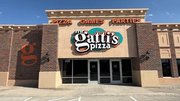Blog
Required restaurant allergen training: Wave of the future?
Many jurisdictions nationally may not yet have regulations mandating how restaurants can best keep customers free from allergens and other food safety threats. But restaurateurs should open their eyes to the fact that this type of on-staff expertise is fast becoming a business necessity.

April 19, 2017 by Betsy Craig — pres, menutrinfo.com
Legislation recently passed in Montgomery County, Maryland, mandating that all restaurant shifts include at least one allergy safety-trained employee has had its share of both positive and negative reviews. But, the fact is that the legislation will kick into effect this July 1 and — like it or not — restaurants there must be ready.
That's why the Maryland County Department of Health and Human Services is supporting the move by providing area restaurants with lists of approved online and in-person food allergy training courses.
The reality also is that though many jurisdictions nationally may not yet have similar regulations, all food service operators should open their eyes to the fact that initiative is not in its infancy anymore. Rather, this kind of increased allergen awareness and the establishment of baseline expertise requirements in food service is the direction the industry is headed. Montgomery County may be an early adopter, but soon this kind of regulation will likely be everywhere.
The fact is that approximately 30 percent of adults and 40 percent of youngsters today are affected by allergies, and restaurants of all types are now being directed to adjust their operations accordingly.
In fact, the commonwealth of Virginia already has a mandated food safety program in place. But Montgomery's County's mandates go a step further beyond requirement of food safety training alone, to include allergy training as well. And that requirement is not going away, so restaurateurs need to get on board with this type of preparation now.
As an example, look at the state of Connecticut where House Bill 5295 stipulates that all the state's restaurants and their employees must undergo food allergen awareness training. Meanwhile, in Illinois, another bill (HB 2510) would require all food service businesses there to retain at least one certified food allergen-trained manager at all times during restaurants' hours of service.
Across the nation, health officials are joining the trend as well. Many have already undergone training to heighten their expertise around food allergens and best practices,relative to gluten-free and operationally safe best practices for food service. Much like when menu labeling requirements took effect at the state and county level, most governmental jurisdications these days are well aware that national legislation often follows the path that smaller areas' lawmakers have taken.
So look around. What are the leaders doing?
In the U.S., Michigan was one of the first states to pass allergy training legislation, with the passage of Senate Bill 0730 in September 2015. That requires that all food service establishments have at least one manager fully allergen-trained and certified by an American National Standards Institute-accredited program.
Like Montgomery County, Michigan has set the direction that others will soon follow. They got started early and analyzed what types of education was out there and, as a result, are fully prepared for the changes that will begin this summer around safer, allergen-aware operations.
So where is your restaurant or restaurant system on this matter? If you haven't started to think about it, you should. Start with the those American National Standards Institute (ANSI) guidelines if you need to get familiar with the types and quality of training out there.
After all, we've all seen the devastation that can occur to a brand when improper or non-existent training leaves staff unprepared to meet the very real demands of customers with allergies in their restaurants. Why chance it?
With some investment in good training, restaurant operators put an extra layer of protection in place. Then, if a cross-contact event occurs, they'll be ready. Plus leadership will have greater piece of mind knowing someone on staff has the expertise to handle these often-tricky situation as they emerge.
About Betsy Craig
To date MenuTrinfo is responsible for menu nutritional information at over 100K US restaurants, food allergy and gluten free ANAB accredited training for hundreds of thousands of food service professionals. AllerTrain is the chosen food allergy training by NEHA providing continuing educational credit hours for those that take and pass its course. Finally, MenuTrinfo delivers food allergy confidence and allergen transparency to today’s food allergic consumer through its onsite division offerings, AllerCheck, Certified Free From allergens for spaces and food products which is an ISO 17065 certification and expert consultation and incident response support when needed.
 ChatGPT
ChatGPT Grok
Grok Perplexity
Perplexity Claude
Claude








